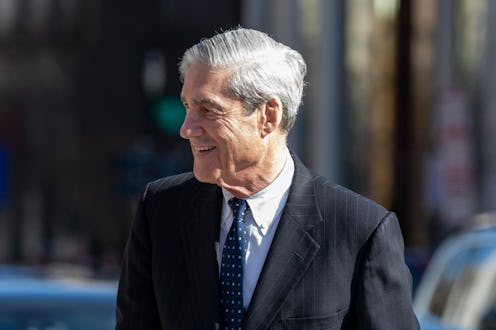
On Sunday afternoon, Attorney General William Barr submitted a brief summary of the Mueller report to Congress. The summary, which came as a letter, indicated that Special Counsel Robert Mueller did not find any evidence that the 2016 Trump campaign colluded with Russia to sway the election. However, the letter left the matter of potential obstruction of justice all but entirely open-ended.
House Judiciary chair Rep. Jerry Nadler shared the letter on his Twitter account, remarking that it "seems like the Department of Justice is putting matters squarely in Congress’ court."
The letter, which Barr said addressed the report's key findings, summarized the two major parts of Mueller's investigation — Russian interference in the 2016 election and presidential actions "that the Special Counsel investigated as potentially raising obstruction-of-justice concerns."
Attorney General Barr was direct and to the point. "The Special Counsel's investigation did not find that the Trump campaign or anyone associated with it conspired or coordinated with Russia in its efforts to influence the 2016 U.S. presidential election," he wrote. He also quoted the Mueller report, itself, which said the same thing, according to Barr.
However, the obstruction of justice portion of Mueller's report, according to Barr's summary, was more vague. It allows the Attorney General to decide whether any obstruction took place based on available evidence. Attorney General Barr wrote that he, in conjunction with Deputy Attorney General Rod Rosenstein, concluded that the information provided by the report didn't provide enough evidence to "establish that the President committed an obstruction-of-justice offense."
"Generally speaking, to obtain and sustain an obstruction conviction, the government would need to prove beyond a reasonable doubt that a person, acting with corrupt intent, engaged in obstructive conduct with a sufficient nexus to a pending or contemplated proceeding," Barr wrote.
Barr then quoted the Mueller report again, writing that "while this report does not conclude that the President committed a crime, it also does not exonerate him."
However, the White House contended that the report's findings did, in fact, exonerate the president.
"The Special Counsel did not find any collusion and did not find any obstruction," Press Secretary Sarah Sanders tweeted. "AG Barr and DAG Rosenstein further determined there was no obstruction. The findings of the Department of Justice are a total and complete exoneration of the President of the United States."
However, the fallout from Barr's letter is far from over. Rep. Nadler said in a tweet that the House Judiciary Committee would ask Barr to testify "in the near future."
"In light of the very concerning discrepancies and final decision making at the Justice Department following the Special Counsel report, where Mueller did not exonerate the President, we will be calling Attorney General Barr in to testify before @HouseJudiciary in the near future," he wrote.
As part of his letter, Barr also explained that he intends to make as much of the full report available to the public as he can, "consistent with applicable law, regulations, and Departmental policies." He outlined the procedure for doing so, but a release date has not yet been set.